Red Dead Redemption 2 PC Review (Single-Player)
November 19, 2019 | 14:00
Companies: #rockstar #rockstar-games
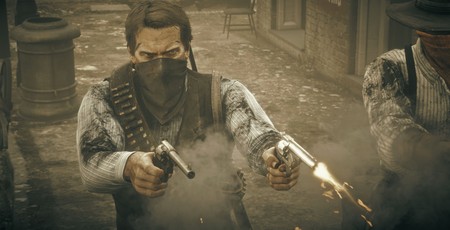
Price: £54.99
Developer: Rockstar Studios
Publisher: Rockstar Games
Platform(s): PC, PS4, Xbox One
Version reviewed: PC
I’ve always been impressed by the scope and technical ambition of Rockstar’s world design, but I’ve generally been left nonplussed by its approach to game design. With Grand Theft Auto V, for example, I often found myself asking what the point of a lot of its systems and ideas were. Its main story, while very well crafted, often left me chafing for a more dynamic experience that let you approach missions in your own way rather than precisely how Rockstar wanted you to. Outside of the story, the game simulated a whole bunch of other activities from investing in the stock market to practising Yoga. But it all felt oddly purposeless, with no central mechanic to bind it all together.
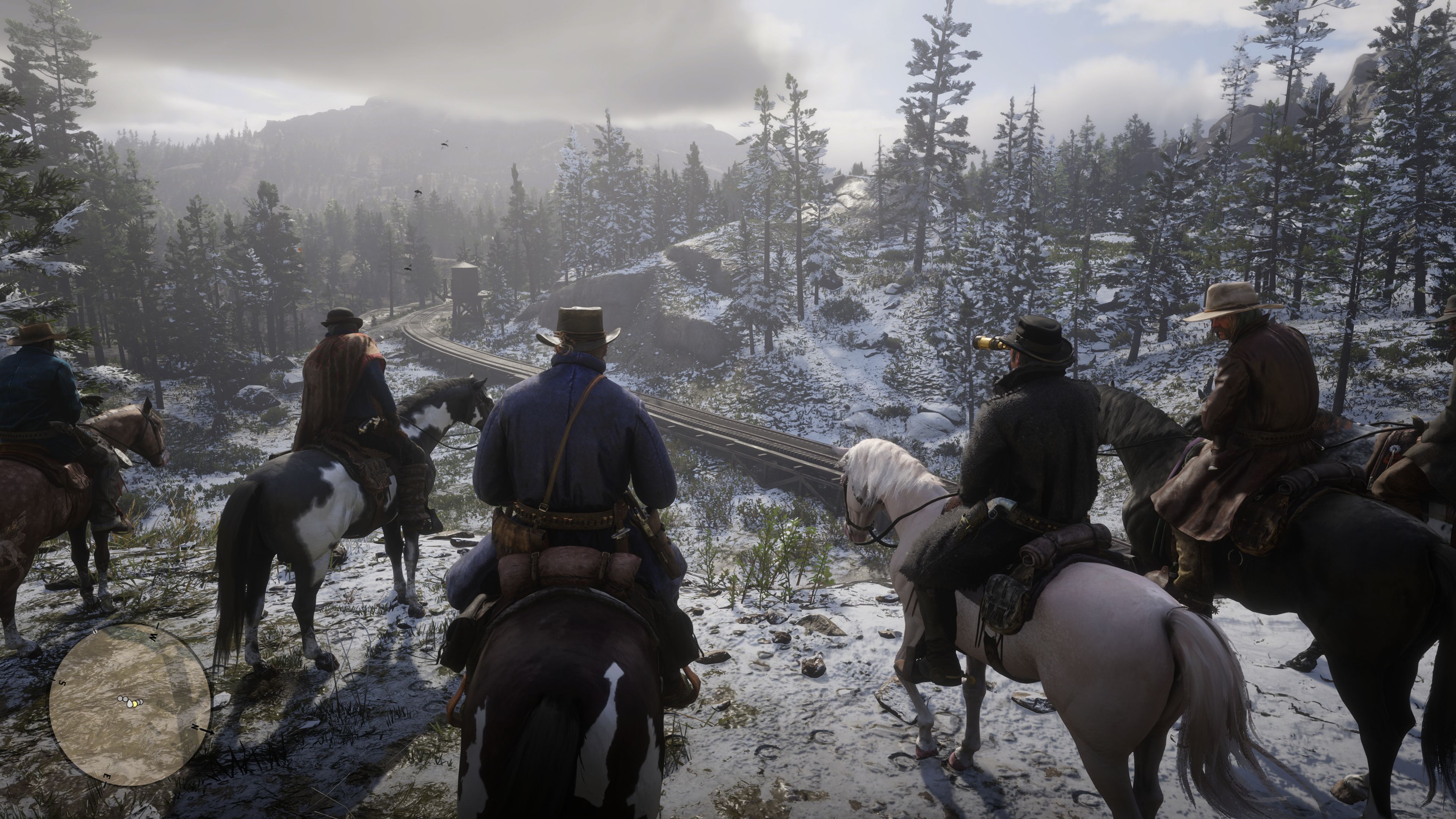
Red Dead Redemption 2 doesn’t fix these problems. At least, not all of them. But I have completely fallen in love with it anyway. It has effectively rendered my long-running complaints null and void through its sheer commitment to detail and craft. Rather then funnelling everything toward some central gimmick, Red Dead Redemption 2 lends everything you do in the game an inherent sense of value regardless of how it ties into the core experience. It’s a distraction technique that reminds me of what Ubisoft did with Assassin’s Creed IV: Black Flag, although Rockstar’s approach to making an excellent game without fundamentally overhauling its design process goes way beyond adding pirate ships.
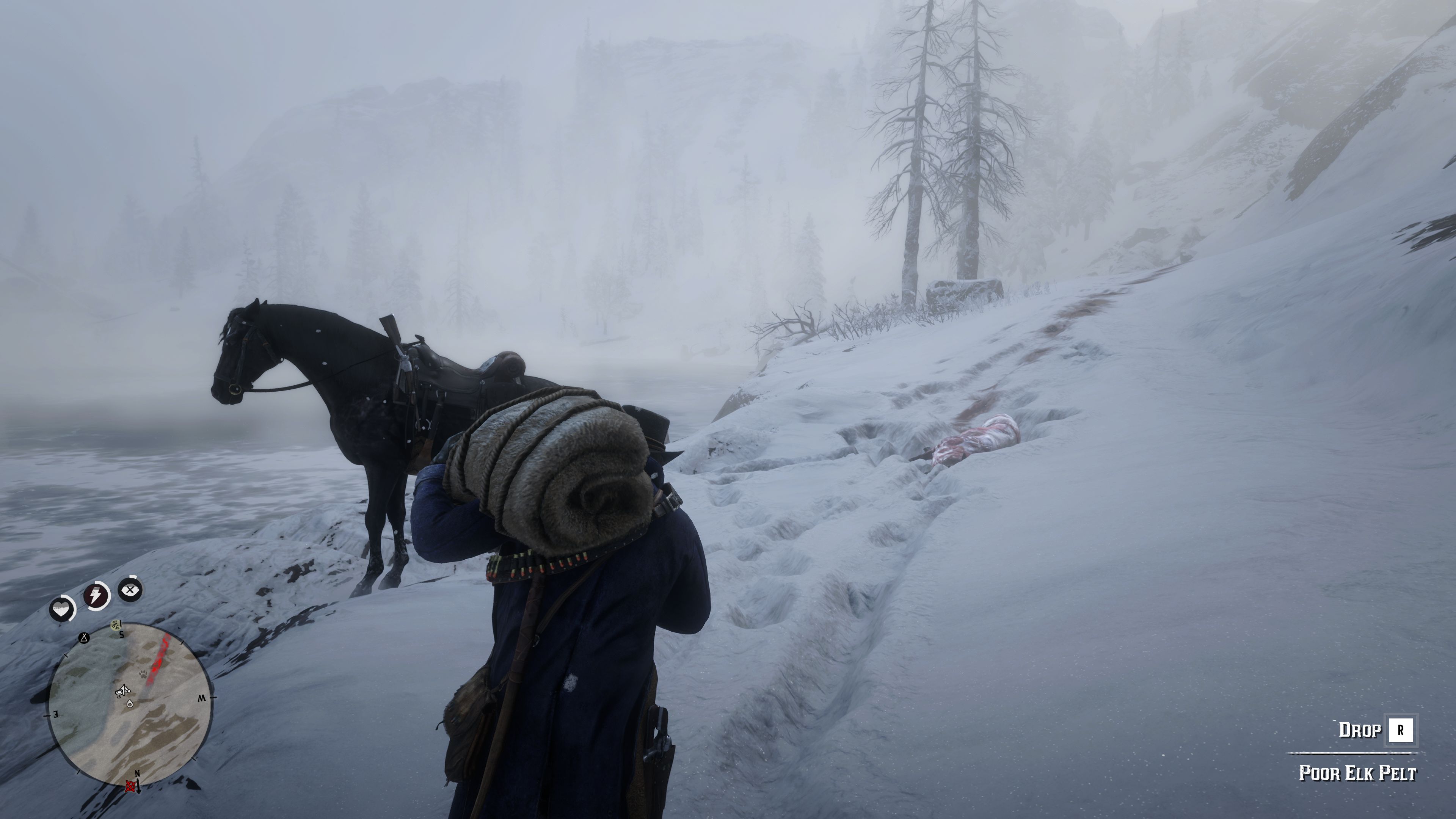
Red Dead Redemption 2’s opening chapter is quintessentially Rockstar, an absurdly detailed, highly cinematic, and oppressively choreographed trek through a frozen mountain wilderness. No doubt you already know this, but Red Dead Redemption 2 is a prequel to the first game. Set in 1899, its story revolves around the trials and tribulations of the Van Der Linde gang, the last few members of which John Marston is dispatched to eliminate 13 years later.
We don’t play Marston here, although he does feature prominently in the story. Instead, we assume the role of Arthur Morgan, a bigger, burlier anti-hero with a gruff southern drawl, a sly wit, and a hint of poet in his soul that belies his scruffy appearance and self-professed lack of education. Morgan feels like more of an archetype than Marston, although this is partly because the sheer scope of the game demands a lot of flexibility in his character. Nonetheless, it is anchored by a spellbinding performance by voice actor Roger Clark. And this is in a game crammed with first-rate voice-acting.
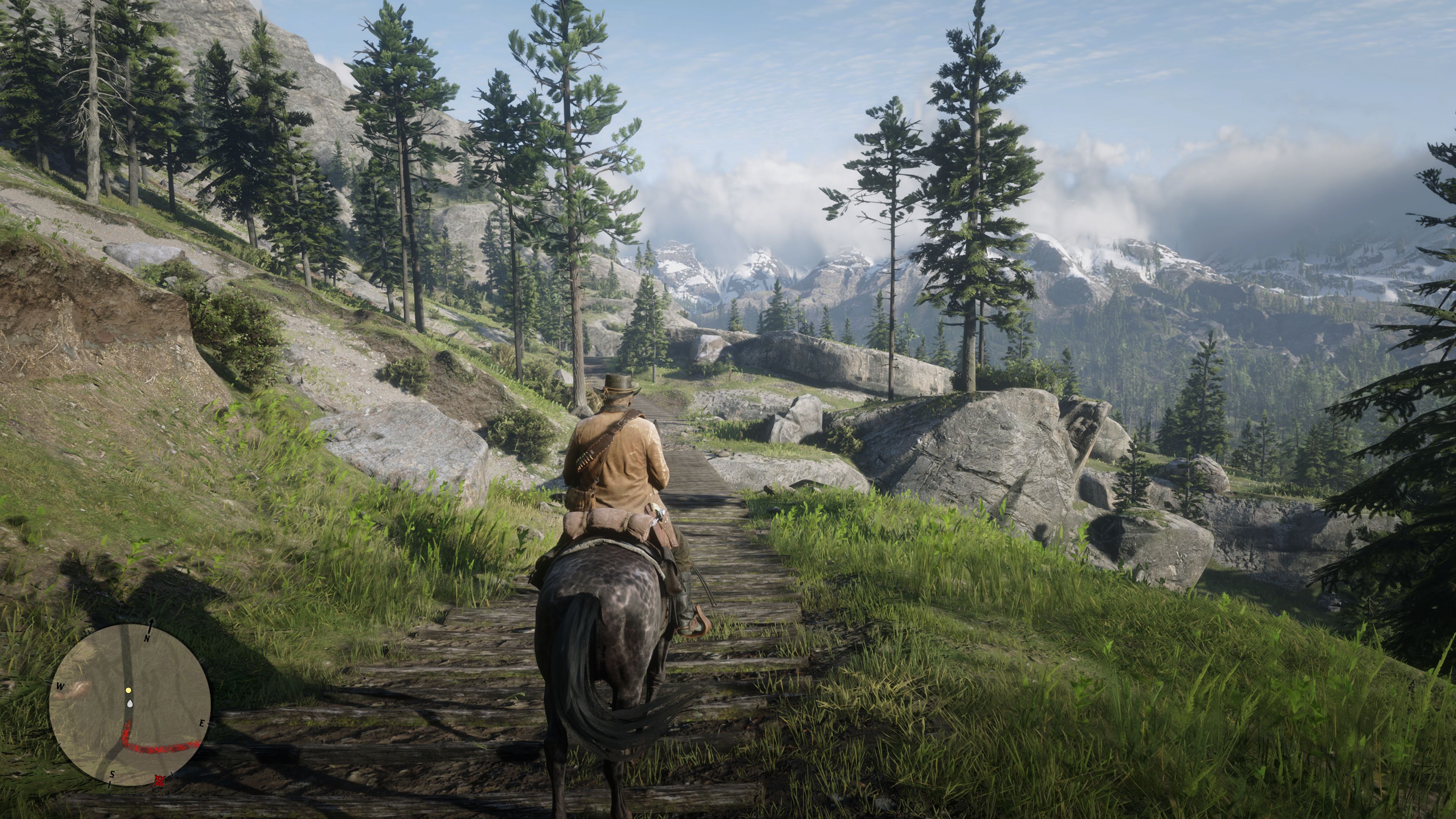
The gang is both the subject and the object of Red Dead Redemption 2’s story, charting its travels around the game’s condensed facsimile of the US, evading the Pinkerton National Detective Agency after a bank heist gone wrong. The gang performs two vital jobs in Red Dead Redemption 2. It gives you characters who you actually care about, a first for me in a Rockstar game. Although the world of RDR 2 isn’t short of strange individuals ranging from the zany to the depraved, for the gang Dan Houser & co have scaled back their tendency toward grotesque caricature, creating a group of characters who talk and act like believable, empathetic humans, which is particularly impressive considering they are unapologetic thieves and murderers.
After Arthur, Dutch is undoubtedly the star, a charismatic leader who is impossible not to like, even long after it’s become clear his approach to leading the gang is only making their situation worse. Even the more typically “Rockstar” character, Micah, the gang’s loose cannon, has a logic to his anarchic, misanthropic worldview that makes him relatable if not necessarily likeable.
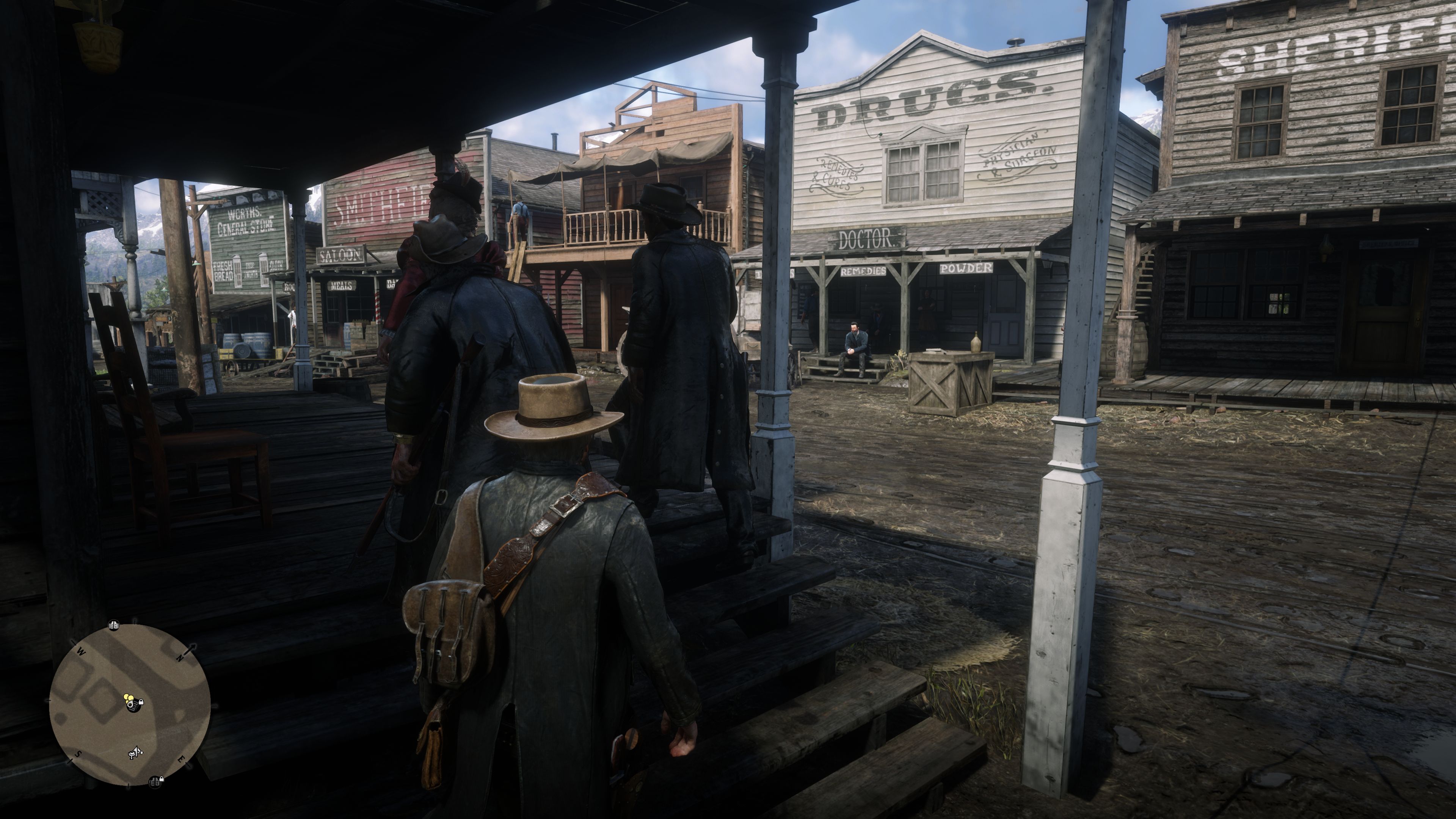
The other main function of the gang is to lend story missions more context. Rather than taking missions from a long string of random characters as in GTA, here nearly all story missions revolve around one or several of your gang members. One might involve robbing a bank with Bill Williamson, while another might see you hunt for a legendary bear with Hosea, the gang’s deputy leader under Dutch. This also gives the game more opportunity to flesh those characters out, investing you in their personalities, their worries and their hopes.
Before playing, I was unsure about RDR2 being a prequel. We know roughly how things are going to turn out for the gang, who’s definitely going to survive beyond the ending, and, by process of elimination, who probably isn’t. But having the plot already mapped out forces Rockstar to double-down on the characterisation, resulting in a story that is actually more compelling than the original, making its fatalistic twists and turns, the deaths, the failures, the betrayals, that much more gut-wrenching when they inevitably occur.
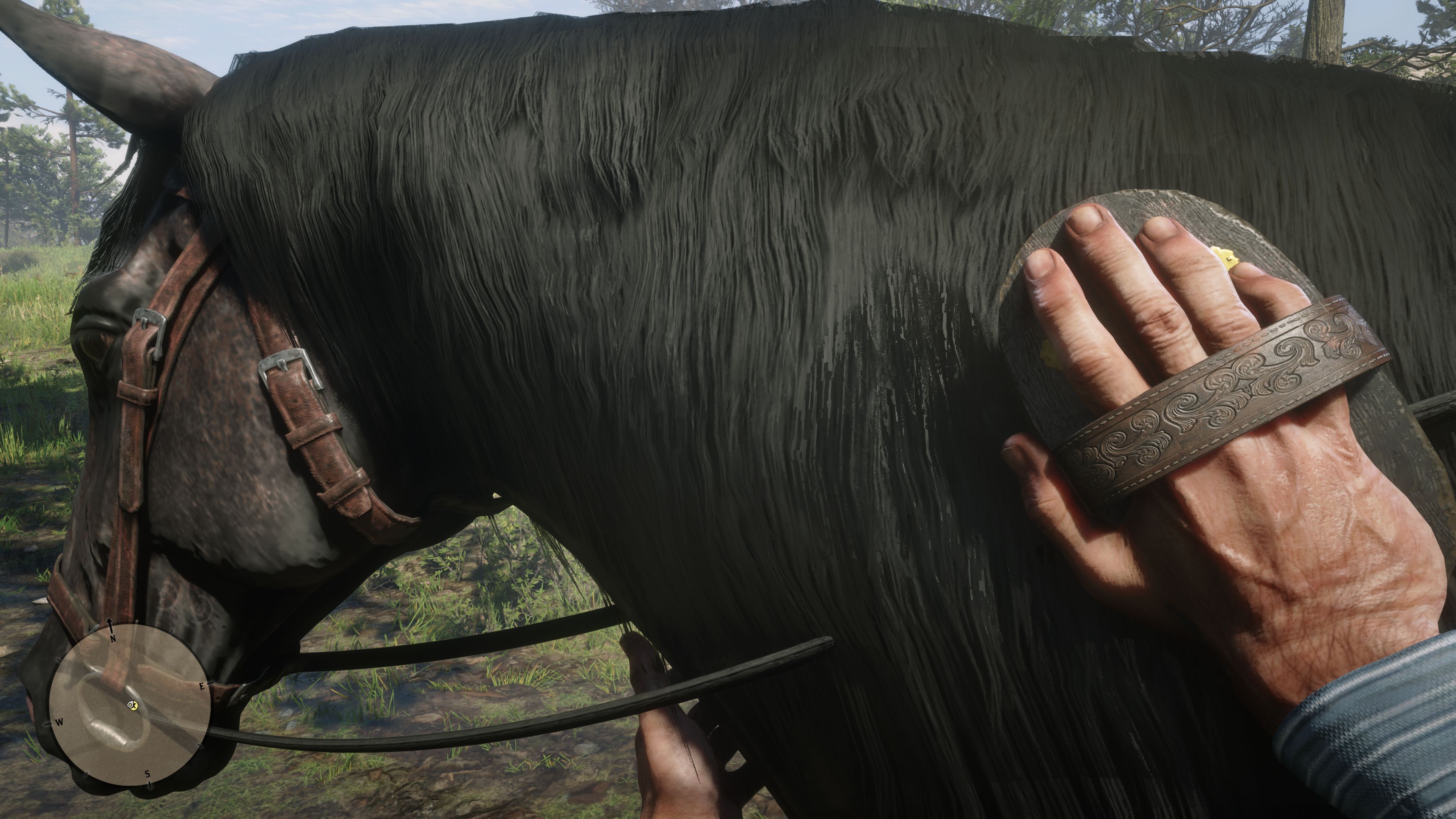
Crucially, this level of attention isn’t applied to the main story alone. RDR 2 treats virtually every aspect of the game’s design like it’s a primary focus. I don’t need to tell you that RDR 2 is a fantastic-looking game – it’s right there in the images. Nonetheless, the sheer range of stunning vistas that RDR 2 offers is quite remarkable, from the vast open ranges of the heartlands – fluffy clouds scudding over its wind-shaped rock formations – to the smoggy warehouses and brick tenements of Saint Denis, RDR’s sprawling deep south metropolis. My favourite place in RDR 2 is undoubtedly the Grizzlies mountain range, a twisting maze of snow-filled mountain passes that lead up to vast frozen lakes and crystalline glaciers.
The PC adds a whole other level of visual fidelity. RDR 2 offers support for both DirectX 12 and the new Vulkan API, with the latter offering DX12 equivalent visuals for marginally better performance. Even on moderate settings, RDR 2 PC offers a superior visual experience to either the PS4 Pro or the Xbox One X. The lighting engine is one of the best I’ve ever seen, and that’s without support for ray tracing. On its higher settings RDR 2 is arguably the best looking game ever made, although you’ll need a top-of-the-line PC to max things out without crushing your performance.
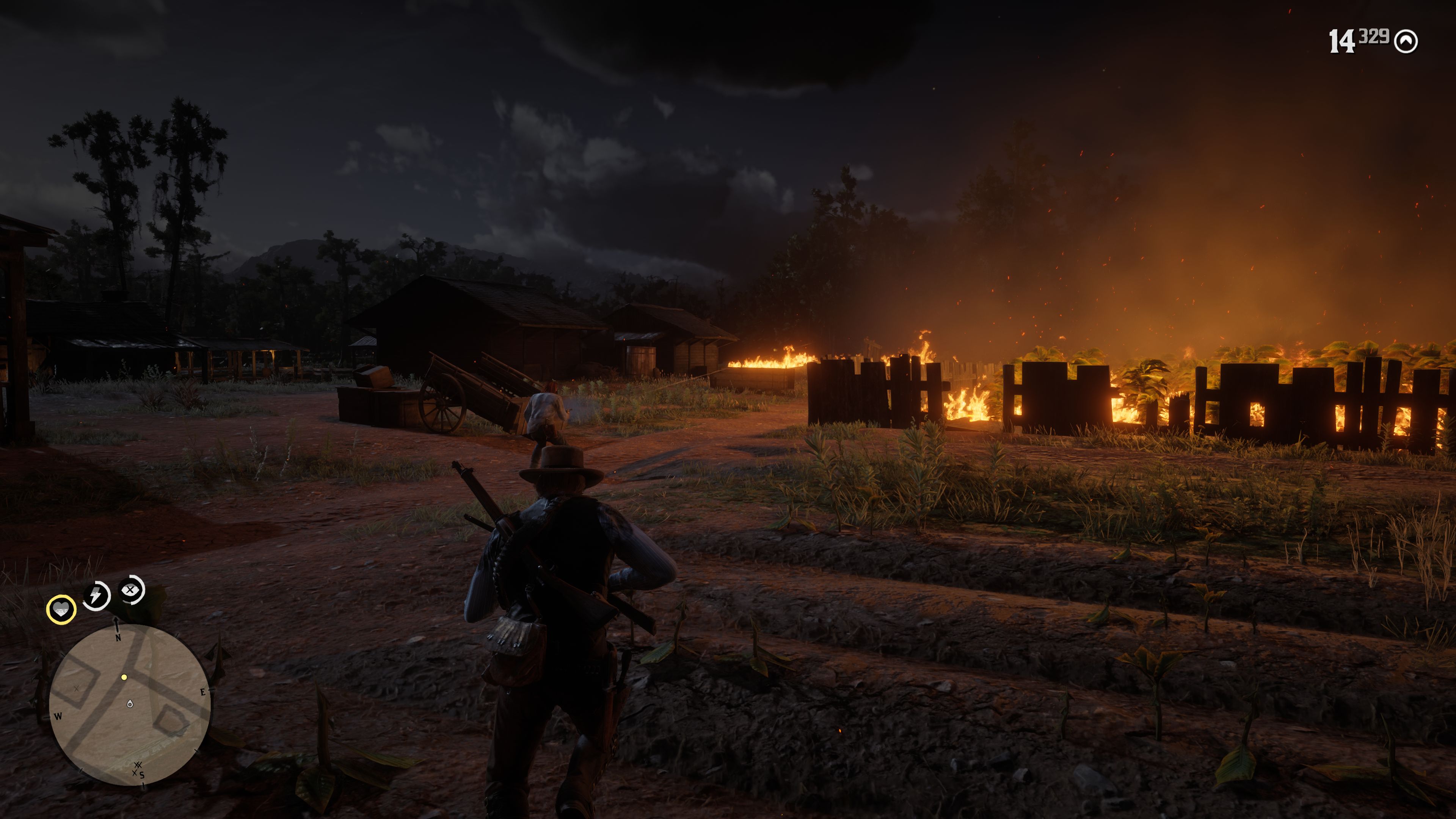
From a mechanical perspective, every single action you do has a delightful tactility to it. Simply moving around the world, you can feel the weight of Arthur’s footfall on grass and stone, through mud and snow. When you loot a house or rob a store, you’re physically opening drawers and wardrobes, picking up individual items and placing them in your satchel. If you go hunting deer, you need to pick up the carcass and place it on the back of your horse, or skin the carcass (complete with extremely graphic skinning animation) then roll the pelt out across the back of your horse. There’s even an animation for shoving a pelt underneath a carcass or a body that’s already on your horse.
Now imagine that level of detail attributed to, say, a bounty-hunt for a local bandit. You’re not just heading to the objective, having a fight, and then bringing back the bounty for reward. You’ll lasso the target, hog-tie them, then put them on your horse. Then you’ll probably search through their camp for useful items, checking the wagon and the tents for money, food, and so forth - and looting any bodies of the bounty’s companions you shot. Then you’ll ride back to the sheriff’s office, choosing either to listen to the bounty’s cries of outrage and pleas for mercy, or hitting them until they shut up. Once you’re back in town, you hitch up your horse, hoist the bounty from its back, walk into the sheriff’s office, toss the bounty in a cell, then swipe up the reward from the sheriff’s desk.
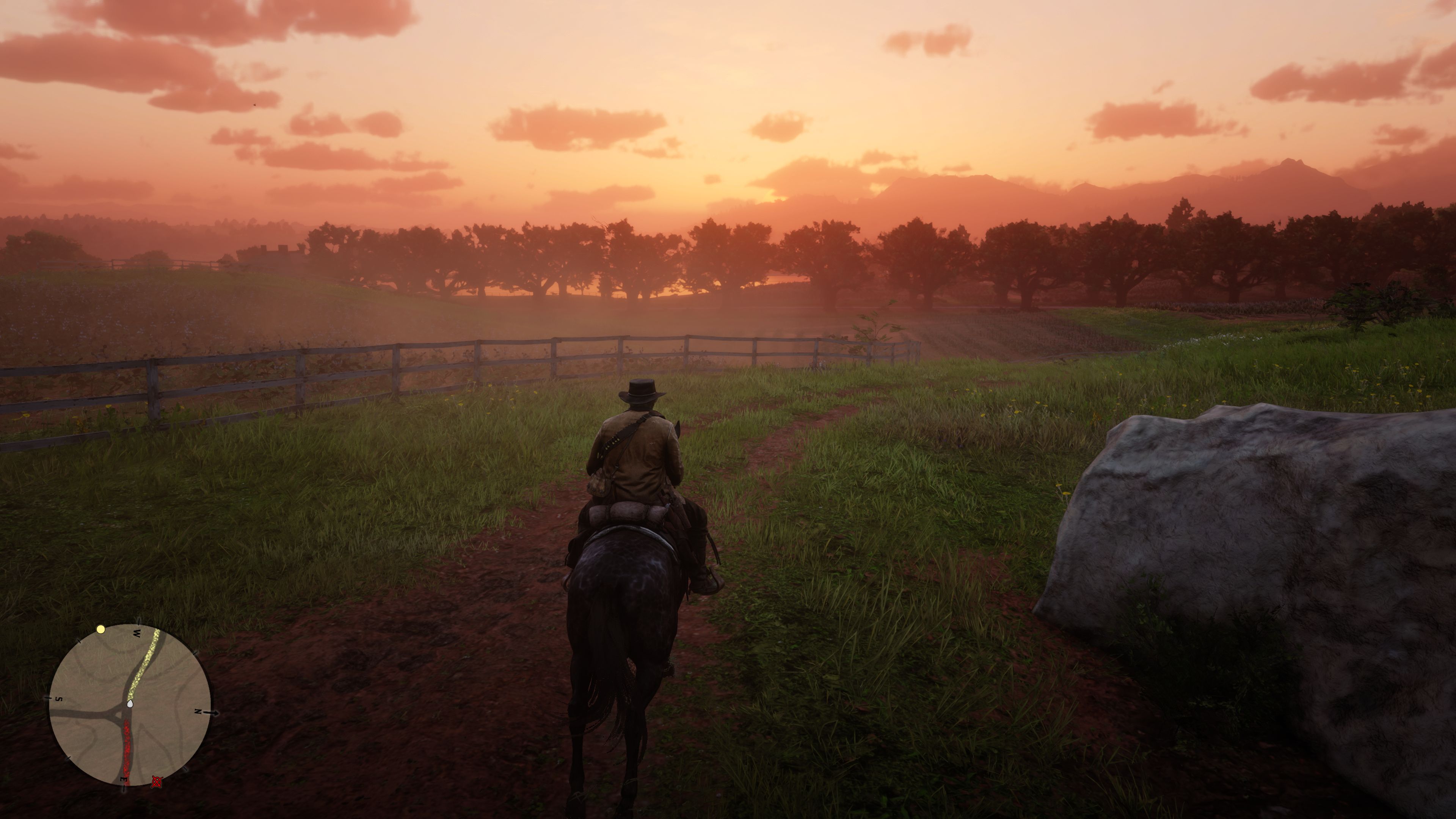
And that’s assuming you ride straight for the bounty. RDR 2 excels at pulling you off the beaten track. There are countless “stranger” side missions that range from tracking down a bunch of old gunslingers for the benefit of a local historian, to stopping an affable yet naïve wildlife photographer from being eaten by the subject of his photographs. Then there are the semi-random encounters you have on the road, massively improved over the original. Being stopped by bandits in RDR 2 is treated like an event in and of itself, with them leaping out from behind the struts of a bridge, or rolling a wagon in front of you on the road. Many such encounters will lead to a reward further down the line. Helping a fugitive on the run from the law may reward you with information about houses that can be robbed. If you run into someone who’s been bitten by a snake, meanwhile, it’s worth giving them a bottle of medicine to recover from their injury.
One of my favourite things to do in RDR 2 is scour the map for isolated cabins and lodges. Nearly every building that lies outside the towns and cities has some little story attached, either self-contained or as part of the larger story or mission. In a burned out village not far from your first encampment, I found the first of what would prove to be many treasure maps, their cryptically drawn landmarks leading you all across the country. In the far north-east, I discovered a cabin that had been struck by a meteorite, smashing through the roof and killing the inhabitants who were sat at the table at the time.
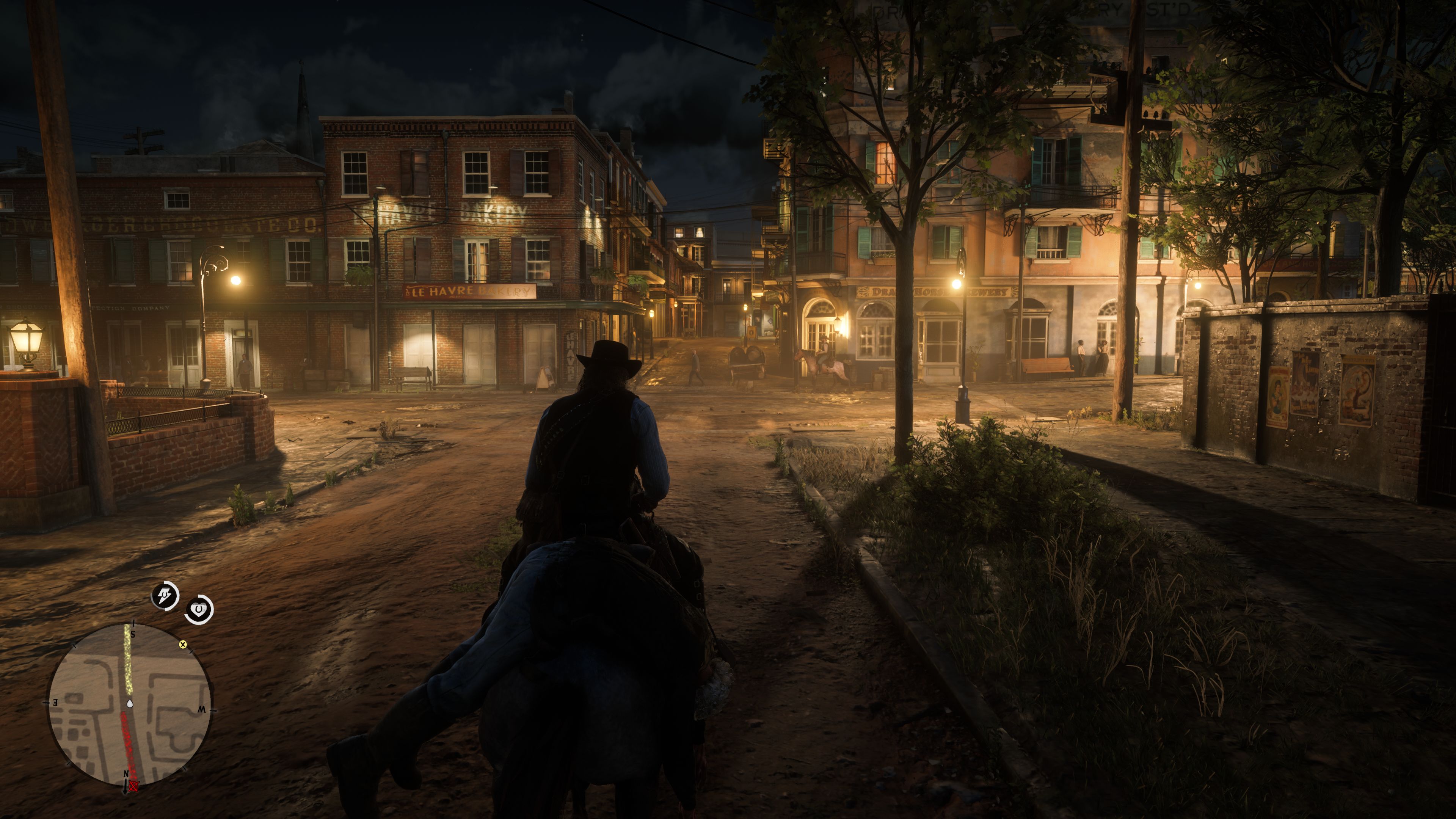
Hopefully I’ve made it clear by this point that RDR 2 is a fantastic game. But like I said, it still demonstrates the same problems that have long dogged Rockstar’s games. Although the world and narrative design are undoubtedly ambitious, the core structure and mechanics remain conservative. Combat, for example, is functionally identical to the first game, a mixture of snappy cover shooting and regular use of Dead Eye for taking out large groups of enemies. It feels great, thanks to Rockstar’s sublime physics engine that has enemies stumbling to the ground or dangling from a single stirrup as their spooked horse gallops toward the horizon. But there’s not an awful lot of depth to it, and there’s a lot of combat the system needs to sustain across the single-player's 60 odd hours.
More broadly, the game remains highly prescribed within missions and activities, leaving little room to experiment with mechanics or approach objectives creatively. Rockstar still treats the player like a pupil at a military school, all 'Go there! Do this! Ride this! Shoot that!', and it really doesn’t like you pushing at the boundaries. For example, there’s a bounty mission where the target is hiding with his family. He claims to have changed his ways, and the game seems to offer you the option to let him run free, but if you actually do this the mission fails. When you capture him, it turns out he’s not quite the transformed man he claims to be. But it would be nice if Rockstar gave you a little more agency when it comes to approaching objectives.
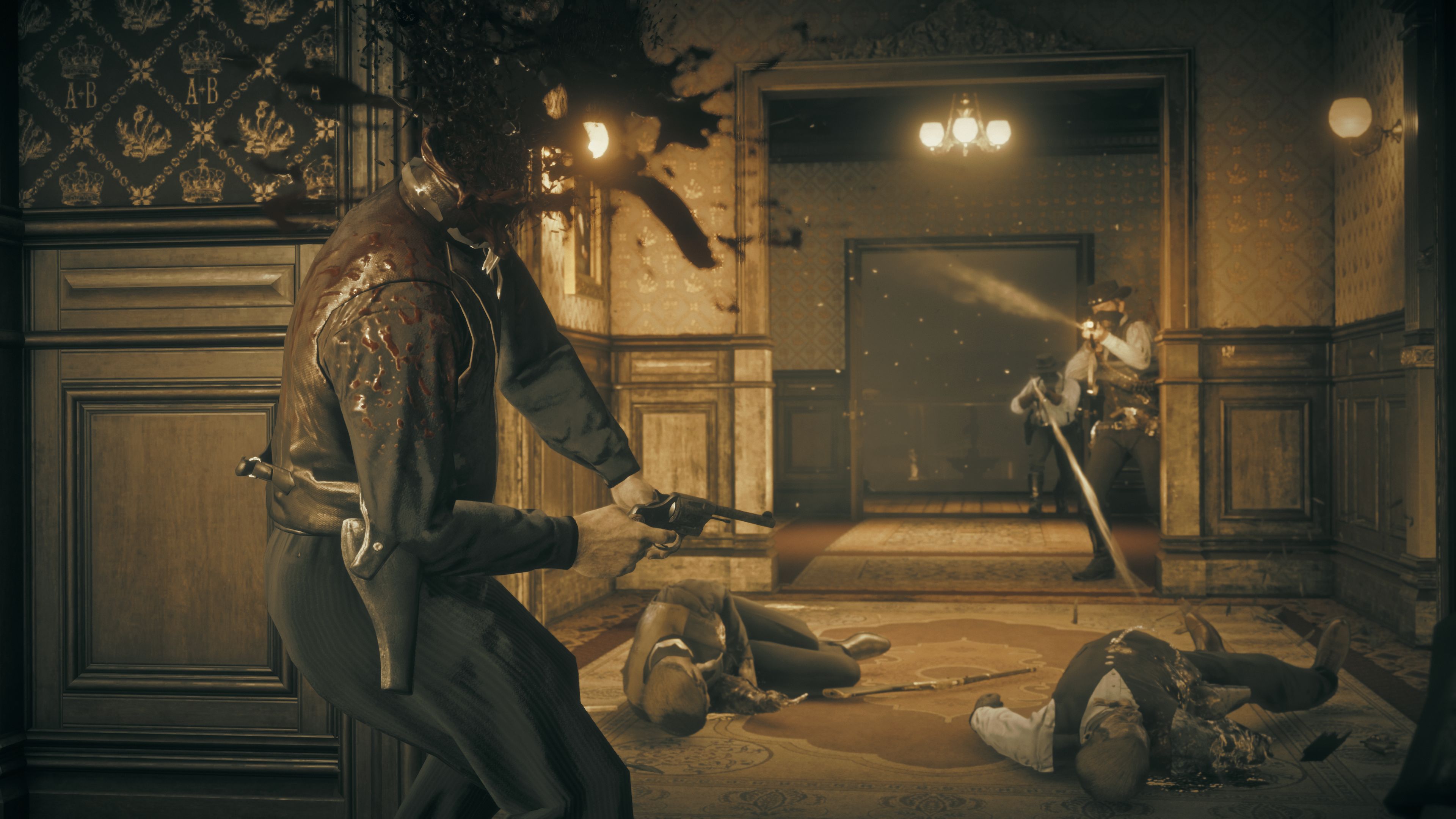
Lastly, and this isn’t a criticism of RDR 2 directly, but playing the game requires you to use the Rockstar Games Launcher, which is dreadful. When I first received the game, I couldn’t play it because the bloody launcher was bugged, meaning it failed at its one and only job. Those issues seem to have been fixed, but it still requires you to fill out a Captcha every time you launch the program, teaching some distant algorithm what a bus looks like. As for the game’s technical reliability, I encountered a few bugs here and there, including one during a mission where Arthur got stuck in geometry and I had to reload, but given the ridiculous size and length of the game, overall my experience was largely painless.
There’s little question that RDR 2 is the best game Rockstar has made. It’s one of the few large open-worlds in which I want to explore almost everything, where I actively avoid using fast-travel in case something new or interesting happens on my journey. It’s not a revolutionary game, however. In many ways it’s Rockstar doubling down on ideas and design methods it's been following for years. But like The Witcher 3, it achieves that rare goal of making exploration and engaging with the world rewarding for its own sake, where you're playing to find out what happens or what's over the next horizon rather than for some more tangible reward. And that makes it a very special game indeed.
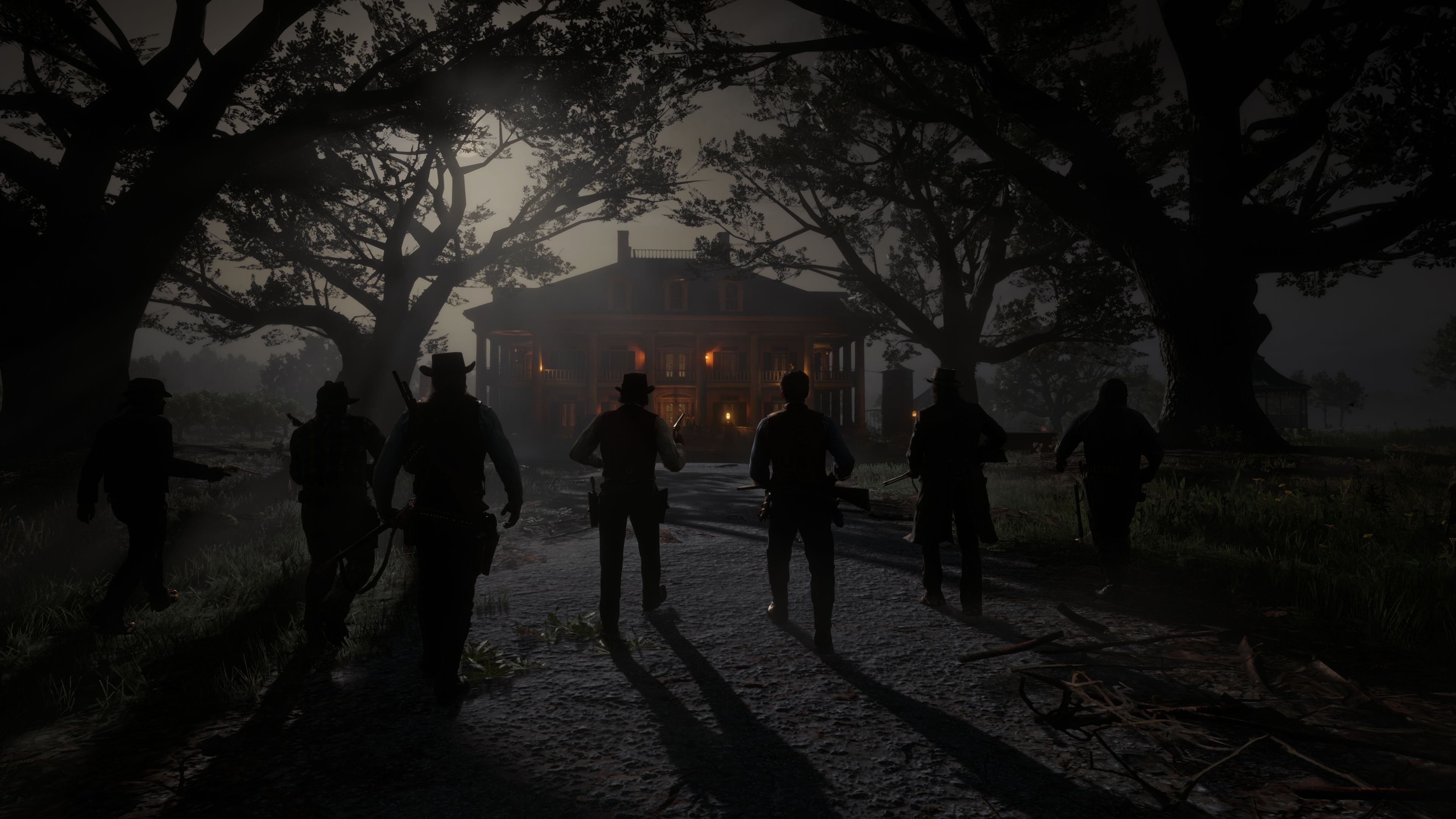


MSI MPG Velox 100R Chassis Review
October 14 2021 | 15:04

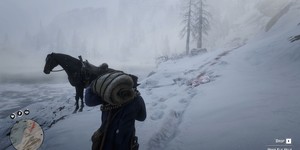
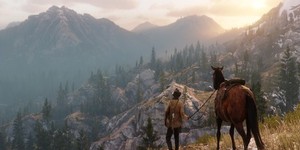
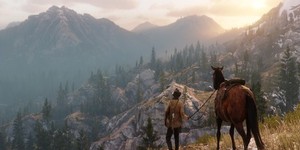





Want to comment? Please log in.